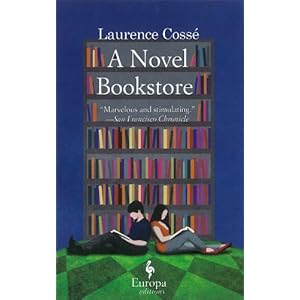So you like books, but what kind of books? What if your life
depended on whether you preferred John Banville or Dan Brown? I don’t ask this
lightly: reading is a serious business, a fact captured beautifully by A Novel Bookstore by the French author Laurence Cosse, (Europa, £tbc).
Ivan is a penniless bookseller who loves nothing more than
spending his day immersed in literary masterworks. When he meets Francesca, an
Italian blue-blood heiress with similar tastes and money to burn, they open their
dream bookshop in the heart of Paris. In “The Good Novel”, they declare, they
will only stock the best literature, as chosen by an eminent but secret panel
of experts. So Waterstones, with its piles of James Corden biographies, this ain’t. But after a spectacular
launch, the shop is subject to a nasty cultural backlash: anonymous columnists
accuse them of elitism, angry authors post slander on the web – and a series of
personal attacks take place against the committee members who choose the
novels.
Cosse starts her novel like a thriller: two attempted
murders, mystery surrounding the identity of the attackers and their motive.
But this is never any more than whimsical, a charade to introduce page after
page of discussion about which novelists are Good (Austen, Bolano, Stendhal) and which are Not Good (Michelle Houllebecq).
You can’t be an avid reader and not, at some time or other,
compile ‘a list’ – a top 100, your personal best ten. Take part in the Big Issue’s own poll via our website [link?] So
you can’t help but read this hugely enjoyable novel while nodding or shaking your
head at the titles the characters deem worthy or unworthy. In one sense, this
could only have been written in France – where the ideal of The Intellectual, a
well educated individual who puts learning and the arts paramount, cuts across
class boundaries in a different way to the UK.
Ultimately though, this is a love letter to the novel and to
independent bookshops: sadly dying out across the western world thanks to a
combination of online trade and the rise of the ebook. You might find its
arguments nostalgic or culturally vital, but you can’t help but be moved.
* This appears in The Big Issue, January 16, 2012
